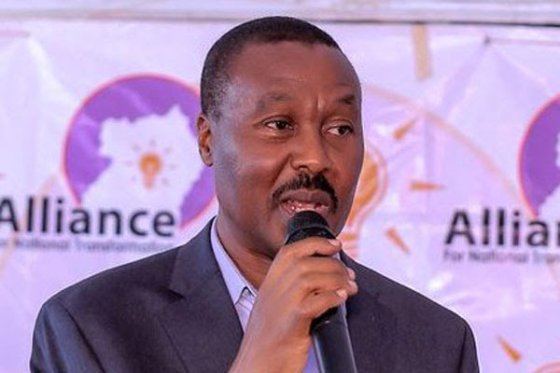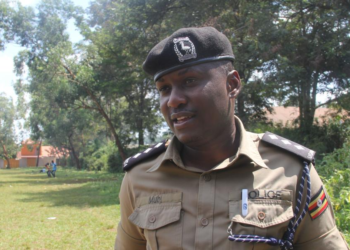In a moment of candid reflection, Gen. Mugisha Muntu, a former army commander and the leader of the Alliance for National Transformation (ANT) has urged fellow opposition parties to rethink their strategy, warning that internal rivalries are undermining their collective credibility.
In his recent media interviews, Gen. Muntu revealed a roadmap for recalibrating the opposition’s approach to more effectively taking on Uganda’s ruling regime.
This stemmed from his views on the continuous creation of new political parties without a general agenda whose main one is to fight their counterparts in the opposition instead of uniting and fighting for the common goal.
“I get a sense of the error they are committing, and I hope they have to shift direction from seeming to focus on the offensive against NUP [National Unity Platform]. They have to forget about moving, or any other opposition party, and focus on attacking the regime, because it’s the regime that we want to remove.”
His call underscores a growing concern that opposition infighting distracts from the primary goal of regime change and compromises public trust.
Over the past few years, Uganda’s opposition has seen fractures and internal conflicts, particularly between the leading opposition parties like the Forum for Democratic Change (FDC), National Unity Platform (NUP), and Democratic Party (DP). Muntu’s call addresses the self-defeating nature of these disputes.
According to Gen Muntu, when opposition parties prioritize attacking each other rather than the government, it fuels public scepticism about their ability to lead.
Gen Muntu cautioned that such strategies could be counterproductive: “For any opposition party to fight against another opposition party creates problems for all of us, undermining the trust of the population in us as the opposition.” Gen Muntu’s views are not far from the views of many political analysts who over time have argued that a fragmented opposition cannot provide a viable alternative to the current government.
Unity among opposition forces has long been viewed as a critical factor for political change in Uganda. The success of the 2016 “TDA” (The Democratic Alliance) coalition, though short-lived, highlighted the potential of a consolidated opposition. However, since then, personal rivalries, ideological differences, and organizational competition have often derailed attempts at cooperation.
Gen Muntu’s call comes at a time when the electorates are increasingly frustrated with the lack of cohesive action among opposition leaders. He clearly meant that ending decades of rule by the National Resistance Movement (NRM) by the current opposition, requires discipline, focus, and collective effort. And without these, even the most well-intentioned opposition groups risk alienating their supporters.
To address these challenges, Gen Muntu called for a clear, focused strategy centred on shared objectives: “They have to move away from that strategy because if they continue that strategy, it will become very problematic for them to build themselves into a credible force.”
According to him, this shift in strategy must involve; Joint Policy Platforms aimed at creating a unified set of goals and reforms that all opposition parties endorse. Strategic Alliances that respect each party’s identity while presenting a united front against the NRM. Public Trust Building, purposely to demonstrate maturity and cooperation to restore faith in opposition leadership and a focused messaging to avoid divisive rhetoric and directing critiques at the regime’s failures.
Meanwhile, as Uganda approaches the next election cycle, the stakes are high. for opposition parties to have a real chance of challenging the entrenched regime, they must heed Muntu’s advice. “The path to regime change lies not in fragmentation but in solidarity.”
However, Gen Muntu’s call comes at a time when opposition members are deeply divided. The Forum for Democratic Change (FDC) is fragmented, with two factions in conflict. The National Unity Platform (NUP) is also facing challenges due to their former Leader of Opposition, Mathias Mpuuga, who has formed a pressure group, seemingly against the wishes of his former allies. The Democratic Party (DP) is in disarray, having lost touch with its supporters since its president, Norbert Mao, aligned with the regime while simultaneously struggling to maintain his leadership.
Do you have a story in your community or an opinion to share with us: Email us at editorial@watchdoguganda.com













